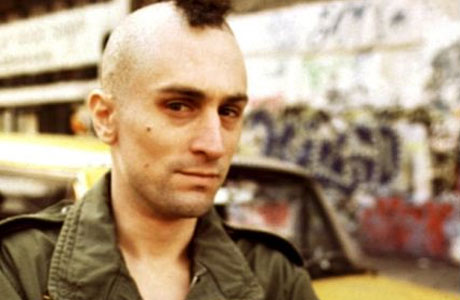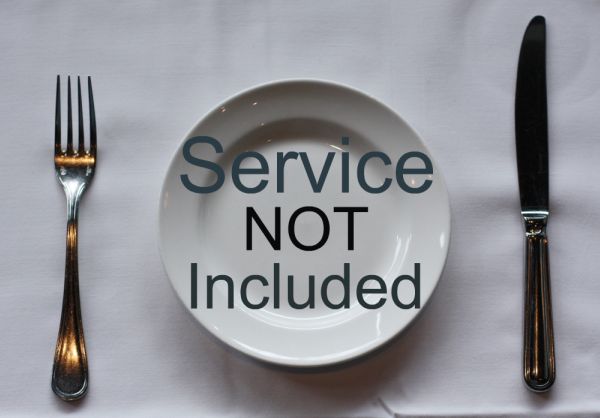Passport Control agents around the world, take note. This is how you treat a traveler going through Customs. When I handed my passport to the man at the Jordanian entry point, after having it stamped with a complimentary two-week visa by the one before him, he looked at the information page, then at me, incredulously.
"One nine six nine?"
"Um, what? Oh, yeah, right. The year I was born."
"I was thinking one thousand nine hundred ninety-two."
Say what? He thought I was born in 1992?! In the most unflattering natural sunlight, with sweat drizzling down my face, he thought I was barely out of my teens?!
Welcome to Jordan!
2. There was probably no place for my Jordanian experience to go but down after that. First, there was the crooked taxi driver (of course) who insisted that I pay him 4 Jordanian dinar (nearly $6) over the standard border-to-city center rate -- 11 dinar ($15.50) -- that's printed on a sign outside of Customs because he had to wait all of two minutes for me to get $141 worth of the local currency out of an ATM en route. He sapped away the faith in the goodness of workers behind the wheel that the taxi driver who took me from the center of Eilat to the border and charged only 30 NIS ($8.50) for it had threatened to restore.
3. And further down we go! Being in Jordan feels like being back in the '90s again, but not in a good way (no TLC on the soundtrack, though I have no complaints about the catchy Arabian beats that I keep hearing everywhere). Apparently, it's not against the law here to smoke in public buildings. Everyone's at it, and as a result, within an hour in the new country, my lungs felt like they were already turning a darker shade of tar. Cough cough.
4. At least the prices here are considerably cheaper than they were in Israel, where nothing ever seemed to be less than 35 NIS ($10). The quality of my first two meals -- a four-cheese pizza (possibly the best I've had, thanks to the smattering of tomato sauce on it, and only 5.50 dinar, or roughly $7.80) and a healthier and even yummier boiled fish and vegetables dinner entree that also set me back a mere 5.50 (in Israel, it would have been at least $20) -- nicely challenged the idea that you get what you pay for.
5. Why was there a box of tissues on each table of the restaurants in which I had those first two meals? Were they in lieu of napkins, or am I not the only one here whose sinuses are going out of control due to all of the secondhand smoke?
7. Restaurant menus have a "non-alcoholic drinks" list and one with "cocktails" -- as in fruit cocktail, or shrimp cocktail, or smoothies. Clearly I won't be getting a buzz with dinner. Two years ago in Kuala Lumpur, I was told by a local that Muslims are strict teetotalers -- hence the relatively high price of booze in the bars and clubs of Kuala Lumpur and Dubai -- so I must assume that the liquor store down the road from my hotel is catering to Aqaba's considerable tourist clientele with its such surprisingly bargain booze: bottles of wine for only 10 dinar ($14) and 70cl bottles of premium vodka and Red Label Johnnie Walker whiskey for a mere 16 dinar (just under $23).
That's probably not even particularly cheap, but after paying 54 NIS ($15) per cocktail at the gay bars in Tel Aviv (in Israel, only the bartenders at straight bars were pouring them for free for me), it wouldn't take much to make me feel like I'm getting drunk at a discount.
8. As in Israel, local menus begin at the back and end at the front, and the waiters all seem to be male. In fact, the only female employee that I saw during my first day in Aqaba was the woman who was cleaning the lobby at the Days Inn. Clearly the division of labor isn't working in favor of females here.
In an interesting contrast, all of the state employees I encountered on the Israeli side of the border before entering Jordan were female. After crossing over into Jordan, I didn't see another woman until the Days Inn housekeeper entered my field of vision.
9. I suspected that English wouldn't be as widely spoken in Jordan as it was in Israel, but one might expect service personnel in the hotels and restaurants of a tourist-heavy city like Aqaba to at least be able to string a few English words together. On the plus side of the language barrier, during my first day in Jordan, not one person asked me where I'm from.
10. Jordanian time is one hour ahead of Israeli time, which means I lost those 60 minutes that I gained in Haifa on Sunday morning when the clocks moved back one hour. Judging from how dark it already was at 6pm and how dark it still was at 6am, there'll be even less time to enjoy the beautiful, bright, blinding sunlight here. I'd better work in some quality time by the Red Sea before it starts to look more like a black sea.



































